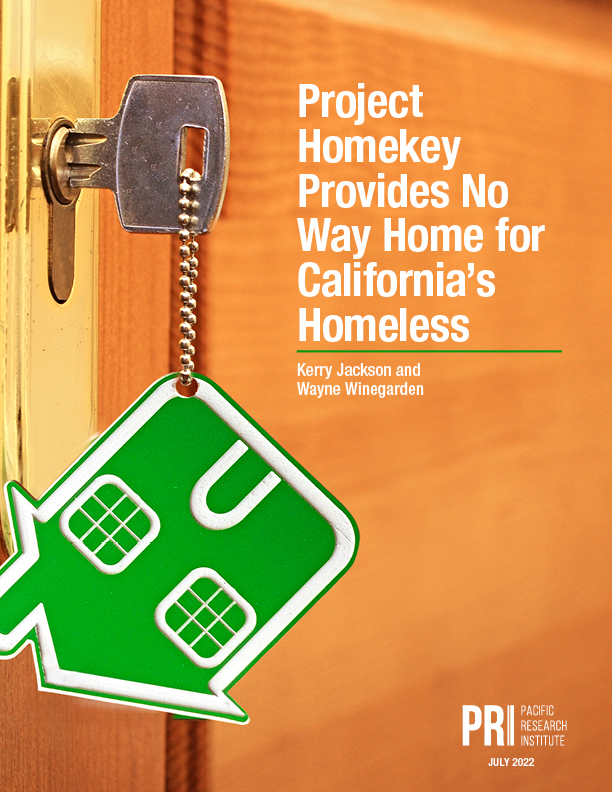SACRAMENTO – Contrary to claims that Project Homekey is successfully addressing California’s homeless crisis, a new study released today by the nonpartisan Pacific Research Institute finds that the program is costly, inefficient, and not helping to reduce homelessness.
Click here to download the study
“California has spent billions on Project Homekey, yet PRI’s report shows that California’s homeless problem is worse than ever,” said Dr. Wayne Winegarden and Kerry Jackson, the study’s co-authors. “Armed with this latest analysis, lawmakers should ask tough questions about why the state is continuing to throw billions at a program that isn’t getting the job done.”
Backed with federal and state funding, Project Homekey aims to utilize unused motels and hotels to move people from the streets to housing. While the Newsom administration claims Homekey has been “the fastest, largest, most-cost-effective additional of permanent housing in California history,” PRI’s research shows these claims are unfounded.
- Data Shows Homekey is Ineffective: Newsom said in his 2022 State of the State speech that Homekey has moved 58,000 people off the streets. However, federal data shows the number of sheltered homeless grew by 3,541 in 2021.
- Total Homeless Population Growing Despite Billions Spent: Preliminary Point-in-Time homeless counts released by eight California counties shows total homeless populations growing in six out of eight counties. Riverside and Santa Clara counties saw overall homeless populations increase, further evidence that Homekey is not reducing homelessness in these counties.
- California Homelessness Grows Despite Nation-Leading Economy: The state’s homeless population has grown since 2014 while homelessness has declined nationally, despite the state’s economy growing more robustly before the pandemic, contracting less during the pandemic, and growing stronger since 2021. That homelessness is increasing despite a growing economy and declining homelessness in other states raises questions about Homekey’s efficiency.
Homekey is based on the “Housing First” approach, which claims that a permanent, stable home best helps people overcome the challenges leading to homelessness. Winegarden and Jackson note that Housing First is an incomplete approach, failing to resolve the social problems that cause many to become homeless, such as addiction and mental illness, and financial and regulatory issues – including the California Environmental Quality Act (CEQA) – that make housing so costly to build.
“Rather than throwing billions more toward a failed program, policymakers should address the root causes of homelessness like addiction, mental illness and regulations driving up housing costs, while leveraging private charities to deliver services more efficiently,” Winegarden and Jackson conclude.
Instead of throwing billions at the ineffective Project Homekey strategy, Winegarden and Jackson urge policymakers to:
- Focus on programs that directly address addiction and mental health treatment;
- Better leverage public resources to connect homeless with resources and private nonprofits; and
- Reform zoning laws, CEQA, and other impediments to increase housing supply and affordability.
The Pacific Research Institute (www.pacificresearch.org) champions freedom, opportunity, and personal responsibility by advancing free-market policy ideas. Follow PRI on Facebook, Twitter, and LinkedIn.

